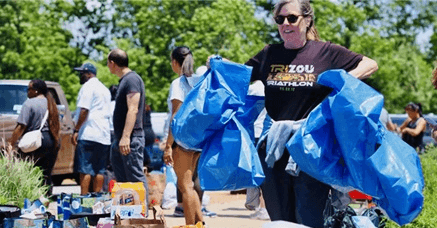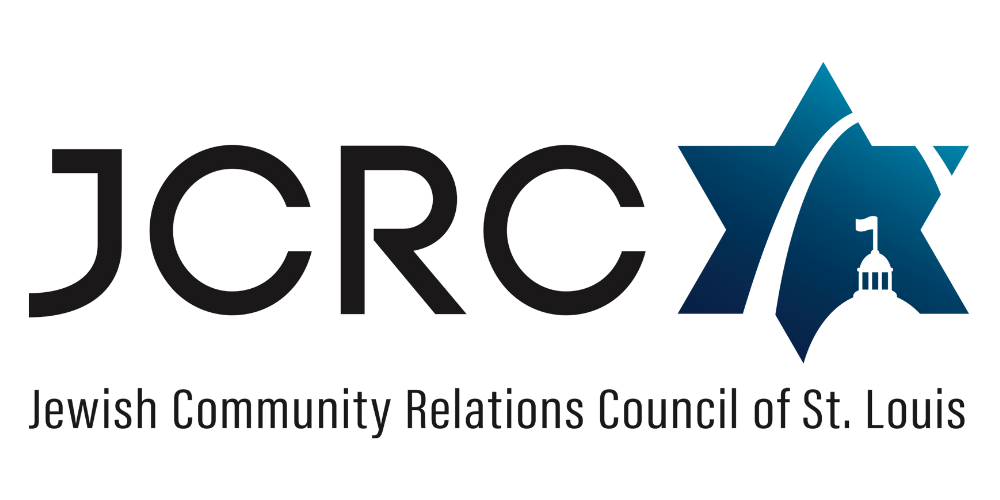
Dear JCRC Friends,
I hope the summer has been giving you all just a bit of peace and relaxation at a time of high tension and confusing complexities.
Recently, I shared some reflections with JCRC leadership about a summer filled with heartache and mixed emotions. On a daily basis we are confronted with the rise of antisemitism and the fomenting of antisemitic violence – along with implications of Israel grappling more forcefully than it ever has with Iran’s perpetual war against her. At the same time, hostages in Gaza are still not free and tragedy for the Palestinian population in Gaza goes on.
In the US, we saw military force used to confront Iran’s military and nuclear capabilities, we continue to see immigration raids tear at the heart of our country, and we are just now being presented with a budget that contains drastic cuts to the very social safety net programs that have defined our social compact for decades.
In today’s world, how do we reconcile all these tensions?
For the Jewish community, how do we balance in our hearts and minds support for one set of things we hold dear – Israel and the fight against Antisemitism – while other things we value are torn asunder – like due process, democratic norms, and the very fabric of our responsibility to one another.
Essentially, one might ask, do we have to sacrifice one part of our Jewish identity for another.
Some may say “yes, we do” – because one of those sets of values is more important than the other. However, I think at JCRC – we believe that we ARE able to protect Jews, love Israel, and stand up for those in our society who are targeted, demonized, and told they don’t matter.
We are told early on in our texts that “we were once slaves in Egypt.” It is a metaphor for all the ways one may be enslaved and seek liberation – but more precisely – it is a command to understand how we became slaves in a society where we were once welcomed and celebrated. It is also a lesson in understanding the fickle nature of political leadership.
“A new King came to power in Egypt who did not know Joseph (or all he had done for Egypt).” We have seen this fickleness too many times in history – whether we were the ones being deemed unworthy or whether we were witness to another group being re-assessed for their worthiness.
And so, we have always been even more sensitive to the plight of other minority groups whose time to be judged comes around.
Whether it was the Civil Rights movement, the protests of the 60’s, or the ongoing commitment to a just society - Jews have always had both eyes on the road, if you will. Looking out for ourselves – because we always seem to be targets – and looking out for others because we know what it means to be a target.
Today, the targets we see are not unfamiliar. Anti-immigration fervor is at a height we have not seen in our lifetime. Anti-identity fervor is rampant – whether the target is the LGBTQ+ community or any racial group who has sought to learn from the past in order to improve the future.
And of course, the latest incarnation of this is the attack on the underclass. This has been a long time coming, and it will have ramifications that will last generations. So right now, federal dollars for programs like SNAP and Medicaid will be slashed – and in a city like St. Louis – where our perfect storm will begin shortly – the impact of our recent Tornado, on top of these cuts, will create needs like we have never seen in the last 40 years.
So, what is to be done?
At our recent New Board Orientation, our JCRC chair David Rosenstock shared with the group his reason for getting involved with JCRC. And for him, the Jewish imperative contained in Pirkei Avot’s “Im ein ani li mi li” was front and center.
The main component, of course, is “If I am not for myself, who is for me.” But as a group who has grown, prospered, and who knows what it is like to have to stand up and speak out – David focused on the subsequent phrases. “U'kshe'ani le'atzmi, mah ani?” - And when I am for myself alone, what am I? “Ve'im lo achshav, eimatai?” - And if not now, when?
Time and time again, we have seen that if we are there for the needs of others, they will more likely be there for you. Is this a certainty? No. Is it a transactional guarantee as some would want it to be? No. But if you look closely at the problems our community faces, the rise in antisemitism is not due to people who randomly hate us. It is due to beliefs and prejudices about Jews that are accelerated today with the speed of social media.
Our mantra at JCRC is that building bridges of understanding and forming lasting relationships is what will diminish and defeat the rise of antisemitism.
The current moment presents us with the opportunity to show our St. Louis community that the Jewish community is for everyone. Yes, we are proud to be for ourselves, but we are not too proud to be for those who have experienced and will experience untold hardships in the coming years. We have a chance to be there for them, and in turn, have them get to know us for who we are as people.
Study after study has shown that telling people who we are and what we believe does not work. We have to show them. We have to work with them side by side. We have to help them with an outstretched arm.
In many ways, JCRC presents an ongoing Civic Call to Action with its basic premise of outreach, dialogue, and support for civic and legislative action that helps create a just society for all in St. Louis and beyond. Through service, and acts of loving kindness, we show our community who we are rather than telling them.
I often feel a story about being at an Iftar dinner with a close friend from the Turkish Muslim community who knew of the Jewish community efforts over the years to help resettle new immigrants form Syria, Afghanistan, and Ukraine. He began to tell friends from his community who had no idea we did things like this, of his Afghani friend who said to him, frankly, that he very much hated Jews his whole life, but then when he came here and had the support of a Jewish community who did so much for his family and who he got to know, he now can’t speak highly enough of Jews. While this may seem like a simplistic story – it really isn’t. It is in fact the whole ball game. It is the “mic drop” moment for why community relations works in building partnerships and in impacting the narrative surrounding Jews.
If we are only for ourselves? What are we? Truer words were never spoken.
Join us as we live out this moral imperative and strive to help out the wider St. Louis community - and continue to break down barriers and build bridges of understanding.
